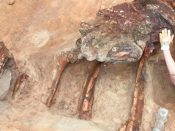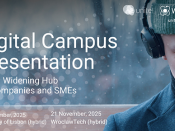Por Marjolein Dijkstra (Utrecht University, The Netherlands).
Predicting the emergent properties of a material from a microscopic description is a scientific challenge. Machine learning and reverse-engineering have opened new paradigms in the understanding and design of materials. However, the soft-matter field has lagged far behind in embracing this approach for materials design. The main difficulty stems from the importance of entropy, the ubiquity of multi-scale and many-body interactions, and the prevalence of non-equilibrium and active matter systems. The abundance of exotic soft-matter phases with (partial) orientation and positional order like liquid crystals, quasicrystals, plastic crystals, along with the omnipresent thermal noise, makes the classification of these states of matter using ML tools highly non-trivial. In this talk, I will address questions like: Can we use machine learning to autonomously identify local structures [1], detect phase transitions, classify phases and find the corresponding order parameters [2] in soft-matter systems, can we identify the kinetic pathways for phase transformations [3], and can we use machine learning to coarse-grain our models? Finally, I will show how one can use machine learning to reverse-engineer the particle interactions to stabilize nature’s impossible phase of matter, namely quasicrystals?
[1] Unsupervised learning for local structure detection in colloidal systems E. Boattini, M. Dijkstra, and L. Filion, J. Chem. Physi.151, 154901 (2019).
[2] Classifying crystals of rounded tetrahedra and determining their order parameters using dimensionality reduction R. van Damme, G.M. Coli, R. van Roij, and M. Dijkstra, ACS Nano 14, 15144-15153 (2020).
[3] An artificial neural network reveals the nucleation mechanism of a binary colloidal AB13 crystal G.M.Coli and M. Dijkstra, ACS Nano 15 (3), 4335 (2021).
Zoom:
Topic: CFTC weekly seminar
Time: May 13, 2021 10:00 AM Lisbon
Join from PC, Mac, Linux, iOS or Android
Or iPhone one-tap: 211202618,82690933410# or 308804188,82690933410#
Or Telephone:
Dial: +351 211 202 618 (Portugal Toll) or +351 308 804 188 (Portugal Toll)
Meeting ID: 826 9093 3410
International numbers available
Or a H.323/SIP room system:
H.323: 162.255.37.11 (US West) or 162.255.36.11 (US East)
Meeting ID: 826 9093 3410





















